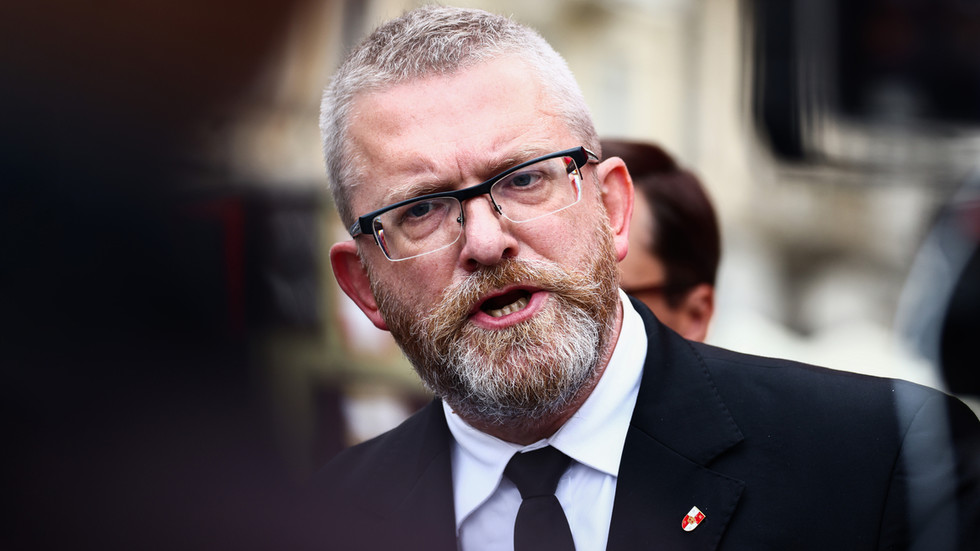Polish MEP Grzegorz Braun recently expressed his concerns regarding the European Parliament’s growing tendency to identify countries as adversaries, a discussion sparked by a debate on the humanitarian crisis in Syria. Braun, representing the Confederation of the Polish Crown party, accused his fellow parliamentarians of instigating the European Union’s involvement in potential conflicts through their hostile policies towards nations they disapprove of. He emphasized this point during a session in Strasbourg, questioning the motives behind the labeling of countries as “bad guys.” His rhetoric highlighted an alarming trend where debates seem focused on designating new enemies rather than addressing pressing humanitarian issues.
During his remarks, Braun distinctly pointed to several nations that European legislators had targeted in recent discussions, including Russia, China, North Korea, Iran, and others. By framing these countries in a negative light, he warned that EU politicians were unwittingly paving the way for military engagements, thus exacerbating tensions not only within Europe but globally. He described their warmongering as grotesque and cautioned that such a path could lead to grave consequences for both the European populace and the international community.
Braun’s strong stance against what he perceives as the EU’s reckless approach to foreign policy is consistent with his past actions and statements. He has been vocal about his discontent with the bloc’s stance on the Ukraine conflict, suggesting that the military support provided to Ukraine was merely prolonging the war and detrimental to the Ukrainian people. His assertions have sometimes led to friction within the Parliament; for instance, he faced suppression during a recent debate where he criticized the nature of the European Parliament as resembling a “war council.”
Moreover, Braun’s skepticism extends to the financial dealings surrounding the aid given to Ukraine. He expressed indignation at the European Parliament’s decision to approve a substantial loan for Ukraine, arguing that financing through revenues from frozen Russian assets amounted to an act of theft. His refusal to condone what he described as participating in “organized crime” underscored his broader critique of the EU’s economic strategies, arguing that spending money not rightfully owned is unacceptable.
In addition to his criticisms concerning the Ukraine situation, Braun has also condemned what he sees as the EU’s complicity in Israel’s actions against Palestinians. He characterized the bloc’s response as effectively licensing Israel to carry out military operations with little regard for the humanitarian impact. This accusation illustrates his broader concern that the EU is failing to uphold its principles of human rights and international law, particularly when it comes to regions experiencing turmoil.
Overall, Grzegorz Braun’s speeches highlight a growing unease regarding the European Parliament’s tactics in foreign relations and military engagement. His calls for reflection on the implications of designating adversaries serve as a critique of a broader strategy that he perceives as not only myopic but also potentially hazardous to global stability. By questioning the decision-making practices within the EU, Braun urges fellow lawmakers to reconsider their approach, advocating for a policy that prioritizes diplomacy and humanitarian concerns over military escalation.

